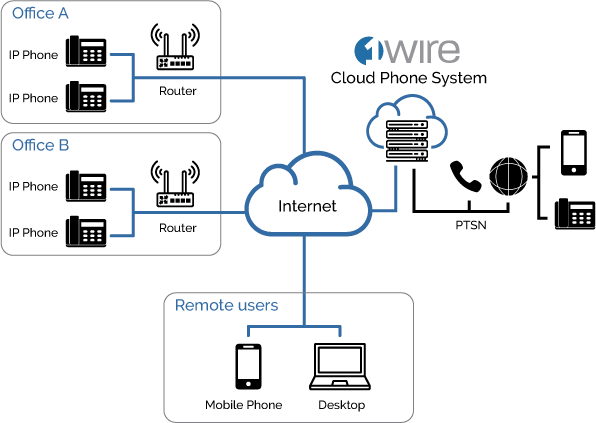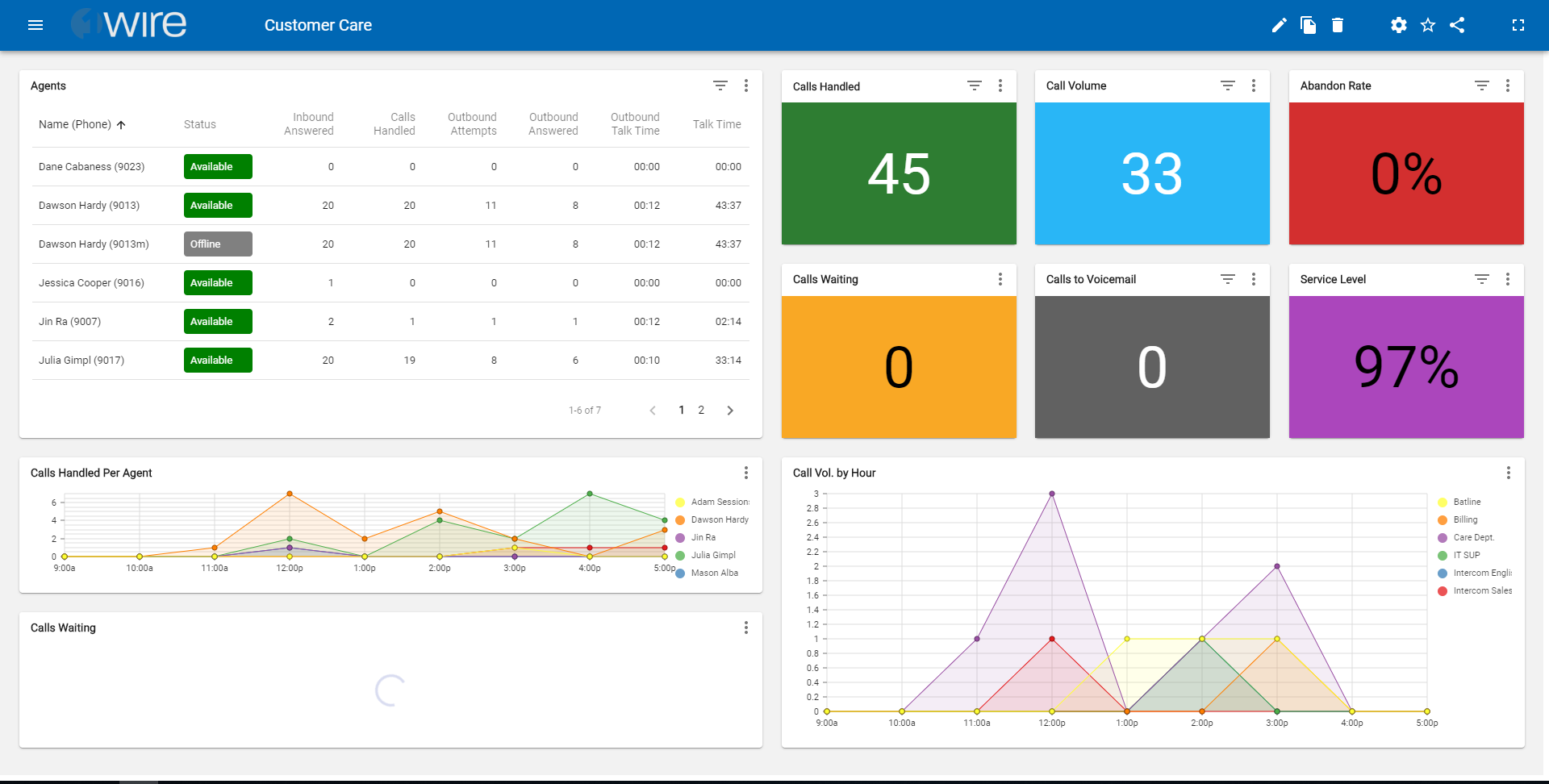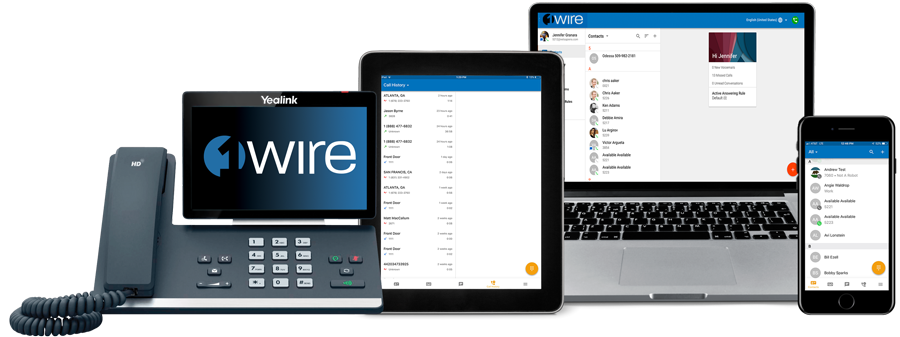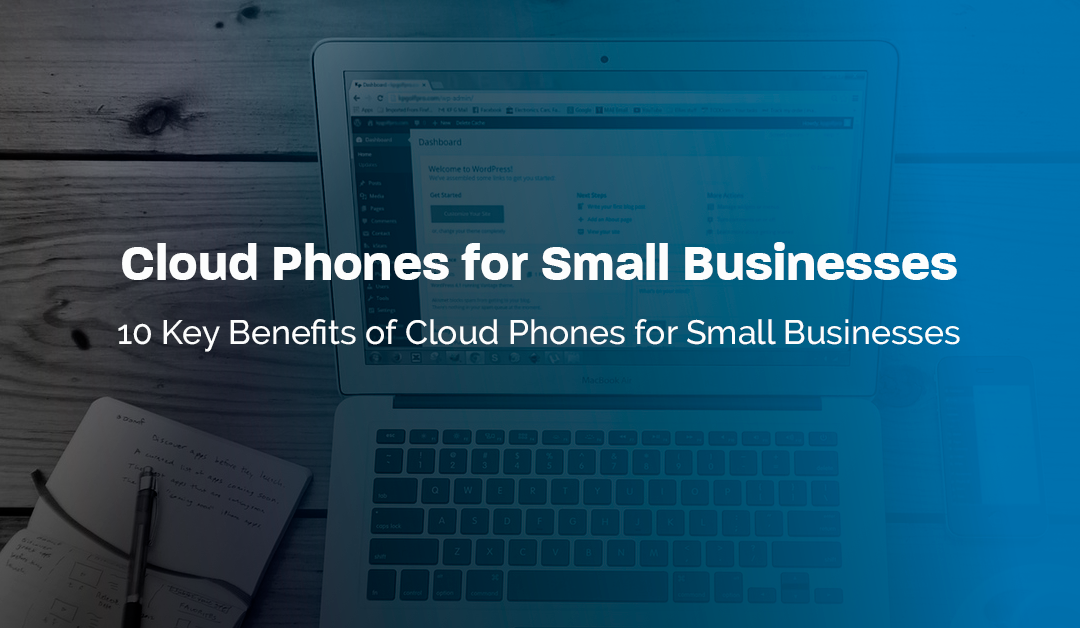In today’s digital age, communication plays a vital role in the success of any business. With technology evolving at a rapid pace, traditional phone systems are becoming obsolete, making way for Voice over Internet Protocol (VoIP) phone systems or you could call them cloud phone systems. This article explores why VoIP phone systems are the future of communication and how they can revolutionize the way we connect.
With VoIP, phone calls are transmitted over the Internet rather than through traditional telephone lines. This technology offers numerous advantages, including cost savings, scalability, and advanced features. Businesses can significantly reduce their phone bill expenses by utilizing the existing Internet connection for all communication needs. Moreover, VoIP phone systems can easily adapt to the changing needs of a growing business, making it a scalable solution that can accommodate any size of an organization.
VoIP phone systems offer a wide range of advanced features, such as call forwarding, voicemail-to-email transcription, and video conferencing. These features enhance collaboration and facilitate seamless communication among team members, regardless of their geographic location.
As businesses continue to embrace digital transformation, VoIP phone systems are proving to be the future of communication, empowering organizations to stay connected, innovative, and competitive in today’s fast-paced business landscape.

Advantages of VoIP phone systems
VoIP phone systems offer numerous advantages over traditional landlines. It’s why Cloud Phone Systems are the best option for office users and remote home workers. One of the key advantages is cost savings. By utilizing the existing Internet connection for all communication needs, businesses can significantly reduce their phone bill expenses. Traditional phone systems require dedicated telephone lines, which can be expensive to install and maintain. With VoIP, phone calls are transmitted over the Internet, eliminating the need for multiple lines and reducing costs.
Another advantage of VoIP phone systems is scalability. Traditional phone systems are often limited in terms of the number of lines available, making it difficult for businesses to expand. VoIP phone systems, on the other hand, can easily adapt to the changing needs of a growing business. Whether a business needs to add or remove lines, VoIP phone systems provide a scalable solution that can accommodate any size of an organization.

Comparing VoIP phone systems to traditional landlines
When comparing VoIP phone systems to traditional landlines, several factors come into play. One of the main differences is that your business phone systems in the cloud is always accessible from anywhere and use the Internet to transmit calls. Traditional landlines rely on physical copper wires to transmit voice signals, while VoIP phone systems use the Internet. This difference in technology has a significant impact on cost, flexibility, and features.
In terms of cost, VoIP phone systems have a clear advantage. Traditional landlines require dedicated telephone lines, which can be expensive to install and maintain. VoIP phone systems, on the other hand, utilize the existing Internet connection, eliminating the need for additional infrastructure. This can result in substantial cost savings for businesses, especially those with multiple locations or remote workers.
Flexibility is another area where VoIP phone systems outshine traditional landlines. With traditional landlines, adding or removing phone lines can be a cumbersome process that requires physical changes to the infrastructure. In contrast, VoIP phone systems can be easily scaled up or down to meet the changing needs of a business. This flexibility is particularly beneficial for businesses that experience seasonal fluctuations or rapid growth.

How VoIP phone systems work
As an Introduction to Cloud Phone Systems, VoIP phone systems work by converting voice signals into digital data and transmitting them over the Internet. When a call is made, the voice signals are captured by a microphone and converted into digital packets. These packets are then transmitted over the Internet to the recipient, where they are reassembled into voice signals and played back through a speaker.
This process is made possible by the use of specialized software called a voice codec. The codec compresses the voice signals to reduce the amount of data that needs to be transmitted. This compression allows for efficient use of bandwidth and ensures that voice calls are clear and free from delays or distortion.

Features and functionalities of VoIP phone systems
One of the key advantages of VoIP phone systems is the wide range of advanced features and functionalities they offer. These features enhance collaboration and facilitate seamless communication among team members, regardless of their geographic location.
One such feature is call forwarding, which allows calls to be automatically redirected to another phone number or device. This feature is particularly useful for businesses with remote workers or employees who are frequently on the move. Calls can be forwarded to a mobile phone, ensuring that important calls are never missed.
Another useful feature is voicemail-to-email transcription. With this feature, voicemail messages are converted into text and sent to the recipient’s email address. This allows users to easily read and respond to voicemail messages, even when they are unable to listen to them.
Video conferencing is another feature that is commonly found in VoIP phone systems. This feature allows users to have face-to-face meetings with colleagues or clients, regardless of their location. Video conferencing can be a powerful tool for collaboration, as it allows for visual cues and non-verbal communication that is often missing in audio-only calls.

Cost savings with VoIP phone systems
Key Benefits of Cloud Phones for Small Businesses is the potential for significant cost savings. By utilizing the existing Internet connection for all communication needs, businesses can reduce their phone bill expenses. Traditional phone systems require dedicated telephone lines, which can be expensive to install and maintain. With VoIP, phone calls are transmitted over the Internet, eliminating the need for multiple lines and reducing costs.
In addition to the savings on phone bills, VoIP phone systems can also help businesses save on long-distance and international calling charges. Since VoIP calls are transmitted over the Internet, there are no additional charges for long-distance or international calls. This can be particularly beneficial for businesses that have clients or offices in different countries.
Furthermore, VoIP phone systems offer the flexibility to add or remove phone lines as needed. This scalability ensures that businesses only pay for the lines they actually use, avoiding unnecessary expenses. Additionally, many VoIP service providers offer competitive pricing plans and packages tailored to the needs of businesses, further increasing cost savings.

Security and reliability of VoIP phone systems
When it comes to communication, security and reliability are of utmost importance. VoIP phone systems have come a long way in terms of security and reliability, making them a viable option for businesses.
In terms of security, VoIP phone systems use encryption to protect voice calls from unauthorized access or interception. Encryption ensures that voice signals are scrambled and can only be deciphered by the intended recipient. This helps to prevent eavesdropping and ensures the privacy of sensitive conversations.
Reliability is another crucial aspect of communication systems. VoIP phone systems are designed to be highly reliable, with built-in redundancy and failover mechanisms. This means that even in the event of a network outage or hardware failure, calls can be automatically rerouted to alternative routes or devices.

Implementing VoIP phone systems in businesses
Implementing a VoIP phone system in a business involves several steps. The first step is to assess the communication needs of the business and determine the required features and functionalities. This includes considering factors such as the number of phone lines, the need for advanced features, and integration with existing systems.
Once the requirements have been identified, the next step is to choose the right VoIP phone system provider. It is important to select a provider that offers reliable service, good customer support, and competitive pricing. Additionally, businesses should consider the provider’s track record, security measures, and scalability options.
After selecting a provider, the next step is to set up the VoIP phone system. This typically involves installing the necessary hardware and software, configuring the system settings, and training employees on how to use the new system. Many VoIP phone system providers offer assistance with the setup and provide ongoing support to ensure a smooth transition.

Choosing the right VoIP phone system provider
Choosing the right VoIP phone system provider is crucial for the success of implementing a VoIP phone system in a business. There are several factors to consider when selecting a provider.
Firstly, reliability is of utmost importance. The provider should have a proven track record of delivering reliable service with minimal downtime. This ensures that business operations are not disrupted and that communication channels remain open at all times.
Secondly, good customer support is essential. Technical issues can arise at any time, and having prompt and efficient support is crucial for resolving these issues quickly. The provider should offer multiple channels of support, such as phone, email, and live chat, and have knowledgeable support staff who can assist with any problems that may arise.
Lastly, pricing is an important consideration. While cost savings are a key advantage of VoIP phone systems, it is important to ensure that the pricing plans offered by the provider are competitive and transparent. Hidden fees or unexpected charges can quickly erode the cost savings associated with VoIP.
Make the process easy and contact 1Wire for Unified Communications. Get access to the best cloud phone system available in Utah and across the United States.

Embracing the future of communication with VoIP phone systems
As businesses continue to embrace digital transformation, VoIP phone systems are proving to be the future of communication. With their cost savings, scalability, advanced features, and enhanced security and reliability, VoIP phone systems offer numerous advantages over traditional landlines.
By utilizing the best business Internet provider for all communication needs, businesses can significantly reduce their phone bill expenses. VoIP phone systems can easily adapt to the changing needs of a growing business, making them scalable solutions that can accommodate any size of an organization. The wide range of advanced features and functionalities offered by VoIP phone systems enhances collaboration and facilitates seamless communication among team members.
Contact 1Wire to get the best VoIP and cloud communications services today.



